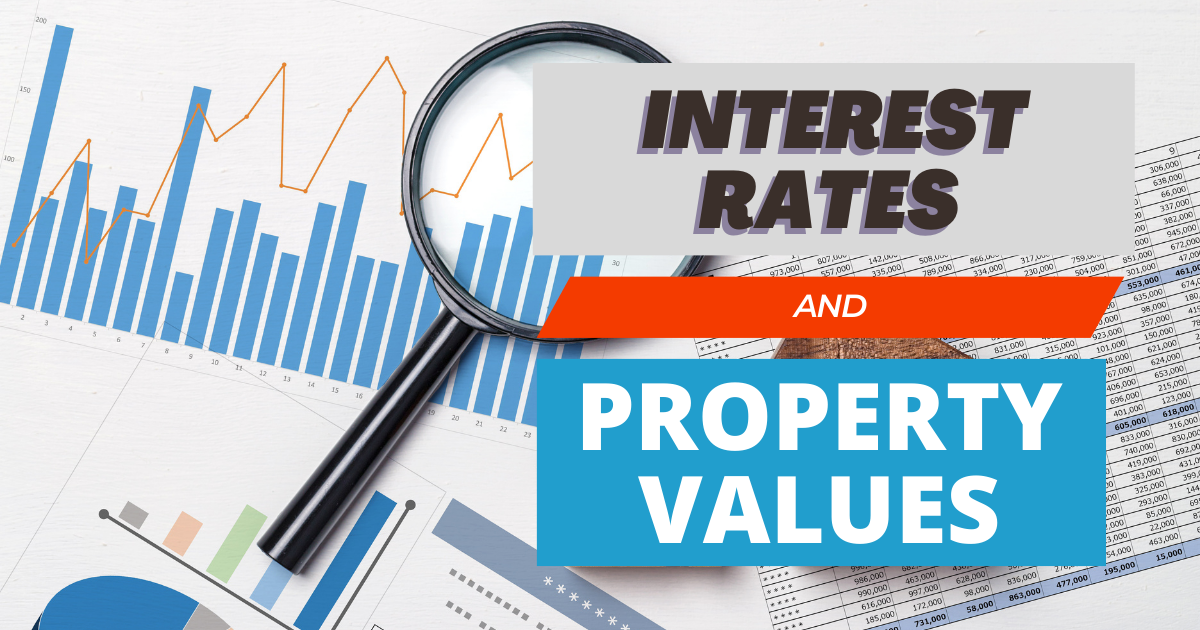
The relationship between interest rates and property values is a complex one, with both positive and negative effects on properties in Dayton. The Federal Reserve raises interest rates to manage inflation and control economic growth. When the national economy is growing too quickly and inflation is increasing, the Fed may raise interest rates to slow down spending and borrowing, which can help to prevent the economy from overheating. On the other hand, if the economy is growing too slowly and inflation is low, the Fed may lower interest rates to encourage borrowing and spending, which can stimulate economic growth. This article is about the shocking connection between interest rates and your property value.
The Positive
When interest rates are low, it makes borrowing money to purchase property more affordable, which can lead to an increase in demand for properties and ultimately, higher property values. However, when interest rates are high, it makes borrowing money more expensive, which can lead to a decrease in demand for properties and ultimately, declining property values.
One example of the positive effect of low interest rates on property values can be seen in Dayton during the period of low-interest rates following the 2008 financial crisis. The Federal Reserve lowered the federal funds rate to near zero, making borrowing money to purchase a property much more affordable. This led to an increase in demand for properties and a corresponding increase in property values. As such, we have enjoyed a 10+ year cycle of historically low interest rates leading initially to being able to afford a nicer home than prior. Plus, there has been a sizable appreciation in the value of homes that we own.
The Negative
On the other hand, an example of the negative effect of higher interest rates on property values can be seen in Dayton in the last 6 months. Last spring, the Fed began raising interest rates to combat inflation, making borrowing money to purchase property more expensive. Higher costs of lending mean there is less income available for housing costs and a lower-priced property is necessary. This leads to a decrease in demand for properties and a corresponding decrease in property values, which we have already begun to see here in the Dayton housing market.
An Example
For example, Let’s compare housing costs on the same house in the spring of 2022 before the Fed began raising rates and February 2023 when this article was written. I have calculated (using an online mortgage payment calculator) the principal and interest payment for a home using a purchase price of $240,000 with a 30-year fixed loan.
- Spring 2022: A 3.25% interest rate equates to a housing payment of $1,044/month.
- Winter 2023: A 6.95% interest rate equates to a housing payment of $1,589/month.
So, the same house has increased in cost to the purchaser by $545/month just within the past 8 months. It is unlikely during this same period that the same purchaser has seen an increase in their income of $545/month to cover this increased housing cost. So, this buyer would need to find a less expensive property to buy or the seller would need to reduce the selling price of their home. To maintain the same monthly payment, the buyer would need to find a home priced at $160,000! That’s a big deal!
Conclusion: The Shocking Connection Between Interest Rates And Your Property Value
In summary, raising interest rates is a tool the Federal Reserve uses to influence the economy and help maintain stable prices, full employment, and moderate long-term interest rates; however, interest rates have a significant impact on property values as well. When interest rates are low, it makes borrowing money to purchase property more affordable, which can lead to an increase in demand for properties and ultimately, higher property values. Conversely, when interest rates are high, it makes borrowing money more expensive, which can lead to a decrease in demand for properties and ultimately, declining property values in an attempt to price the homes for more affordably.
#interestrates #propertyvalues #residentialrealestate